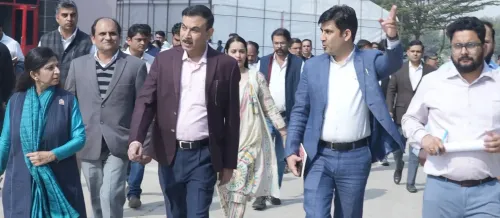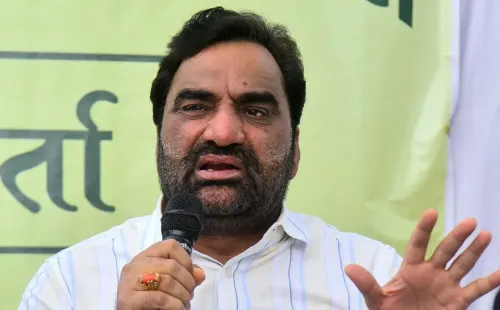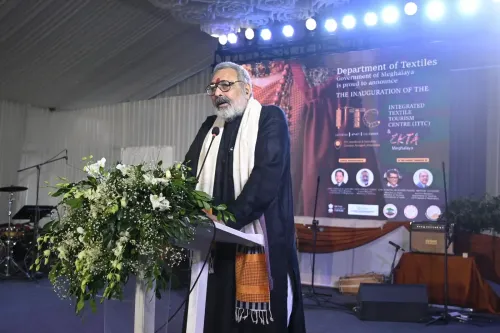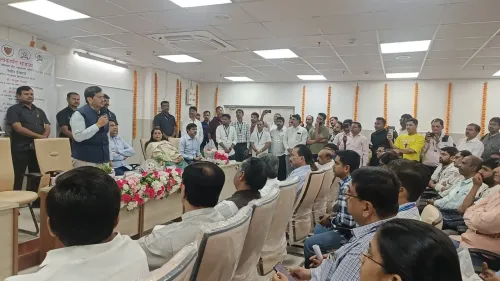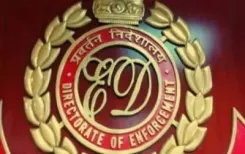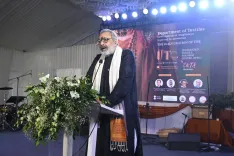What Should You Know About the Special Intensive Revision of Bihar Electoral Rolls?
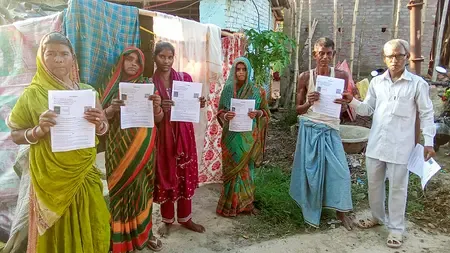
Synopsis
Key Takeaways
- Special Intensive Revision aims to update Bihar's electoral rolls.
- Process involves around 7.90 crore electors.
- Concerns raised regarding documentation and disenfranchisement.
- Opposition parties are actively protesting against the SIR.
- Legal challenges have been filed in the Supreme Court.
New Delhi, July 8 (NationPress) The current Special Intensive Revision (SIR) of the electoral rolls in Bihar, which is gearing up for elections, has sparked significant political controversy. Opposition parties have raised accusations of irregularities, a claim that the Election Commission of India has strongly rejected, ensuring the smooth and timely execution of this critical process that involves around 7.90 crore voters.
Here’s a comprehensive overview of this monumental initiative and the associated concerns:
What is SIR? The Special Intensive Revision in Bihar is a systematic effort aimed at updating the voters' list, with July 1, 2025, set as the qualifying date.
Objective: Initiated on June 24, the SIR aims to incorporate eligible voters into the electoral rolls while removing those ineligible. The last such revision took place in 2003.
Execution: Approximately 77,895 Booth Level Officers (BLOs) are tasked with visiting each household multiple times to gather completed enumeration forms.
Pre-filled enumeration forms have been distributed to 7.69 crore electors, representing 97.42 percent.
About 4.96 crore voters, making up 60 percent of the electorate who were included in the rolls before 2003, are exempt from submitting documents to verify their date or place of birth.
The remaining 40 percent, approximately 3 crore voters, will need to provide supporting documentation for verification.
According to the ECI, voters must submit at least one of the 11 specified documents for verification, excluding Aadhaar.
The commission has also made the documentation process more lenient, allowing the Electoral Registration Officer (ERO) to make decisions based on local inquiries if necessary documents are unavailable.
A total of 239 EROs, covering all 243 Assembly constituencies, along with 963 Assistant EROs, 38 District Election Officers, and the Chief Electoral Officer, are assisting electors in submitting their forms.
Furthermore, 1,54,977 Booth Level Agents (BLAs) appointed by various political parties are actively aiding in the SIR process.
All individuals who submit Enumeration Forms will be included in the draft Electoral Roll scheduled for publication on August 1.
Complaint Redressal: Individuals dissatisfied with an ERO's decision can appeal to the District Magistrate, with a second appeal possible to the CEO.
Political Parties’ Concerns: Opposition factions have announced a state-wide bandh on July 9 in protest against the SIR. Tejashwi Yadav, the Leader of the Opposition in the Bihar Assembly, described this electoral roll revision just months before the Bihar election as a 'conspiracy'.
They argue that large areas of the state affected by flooding make it challenging for many voters to provide the necessary birth documentation.
Concerns have also been raised regarding the stringent documentation requirements and the tight deadline of July 25, which could disenfranchise millions, particularly among marginalized groups like Muslims, Dalits, and migrant workers.
Legal Battle: The SIR has faced challenges in the Supreme Court, initiated by Rashtriya Janata Dal (RJD) MP Manoj Jha, the Association for Democratic Reforms (ADR), the People's Union for Civil Liberties, activist Yogendra Yadav, Trinamool Congress MP Mahua Moitra, and former MLA Mujahid Alam. The apex court has agreed to hear the matter but declined to impose an interim stay on the SIR.
ECI Update on SIR: The process is proceeding smoothly. As of July 7, the ECI has received 2.87 crore enumeration forms, accounting for 36.47 percent of the nearly 7.90 crore electors registered in Bihar as of June 24.
Partially filled forms can also be downloaded from the ECI portal (https://voters.eci.gov.in) and on the ECINET App, where voters can upload their completed forms themselves.


